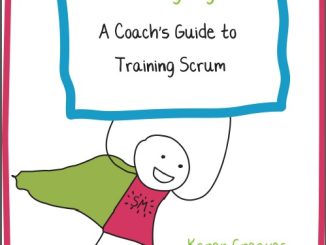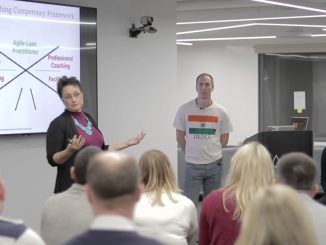Agile coaching for Scrum software development teams
The title of the book “A Coach’s Guide to Training Scrum” is a form of understatement. If it actually provides some guidance about training people to Scrum, this book contains actually a complete step-by-step course to teach Scrum that an Agile coach could use “as is”.
So how to become a self-aware jack-of-all-trades in agility? Is there such a thing as Full Stack Agile Coach? If yes, how to become one?
There was a time when software developers worked with consultants that will do things for their company or teach some technical knowledge. Agile approaches have brought forward another type of people: coaches.
The world has changed and coaches have a significant role in helping clients and their Agile organizations adjust to the post-lockdown world. This presentation explains how to help overcome the twin problems of survivor syndrome and resulting imposter syndrome.
In this presentation, Lyssa Adkins and Simon Powers explore the role and offer a definition of what agile coaching really means, what competencies you should expect from an Agile coach and a framework for learning. They will also share some cool things being done in this space to maximize the chance of transformation success by having the right people.
If today many people equal Agile with Scrum, the Agile approach is also deeply rooted in software engineering practices, like pair programming or refactoring, promoted by the eXtreme Programming (XP) movement. In this book, Emily Bache presents the Samman Technical Coaching approach. It is a method for helping software development teams to become more agile and raise the quality of their work.
As most organizations have moved from in-person to remote team Scrum coaching, the Agile coaching tool-set has had to adapt. This talk presents experience that has been gained so far and what are the tools that are most often used.








